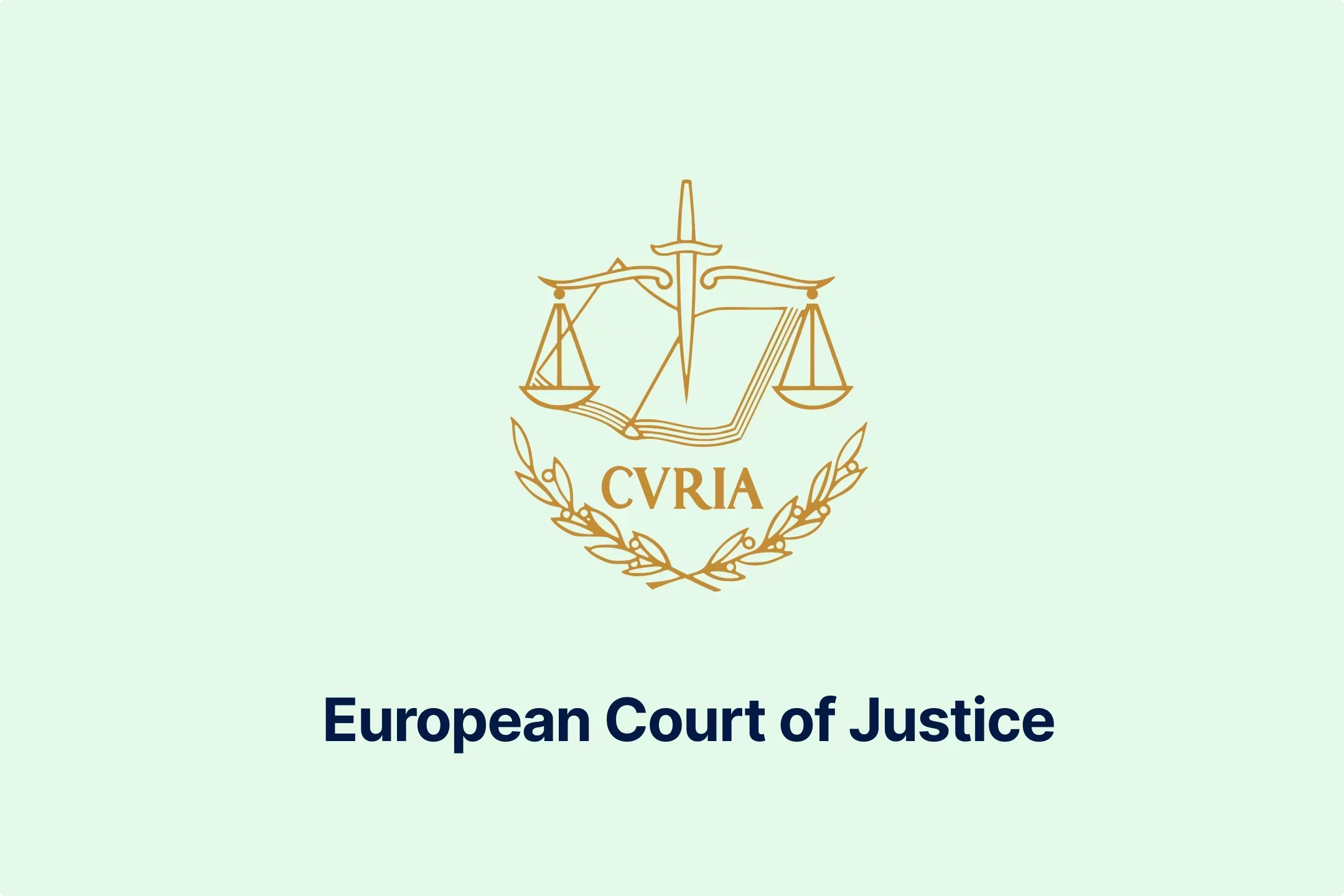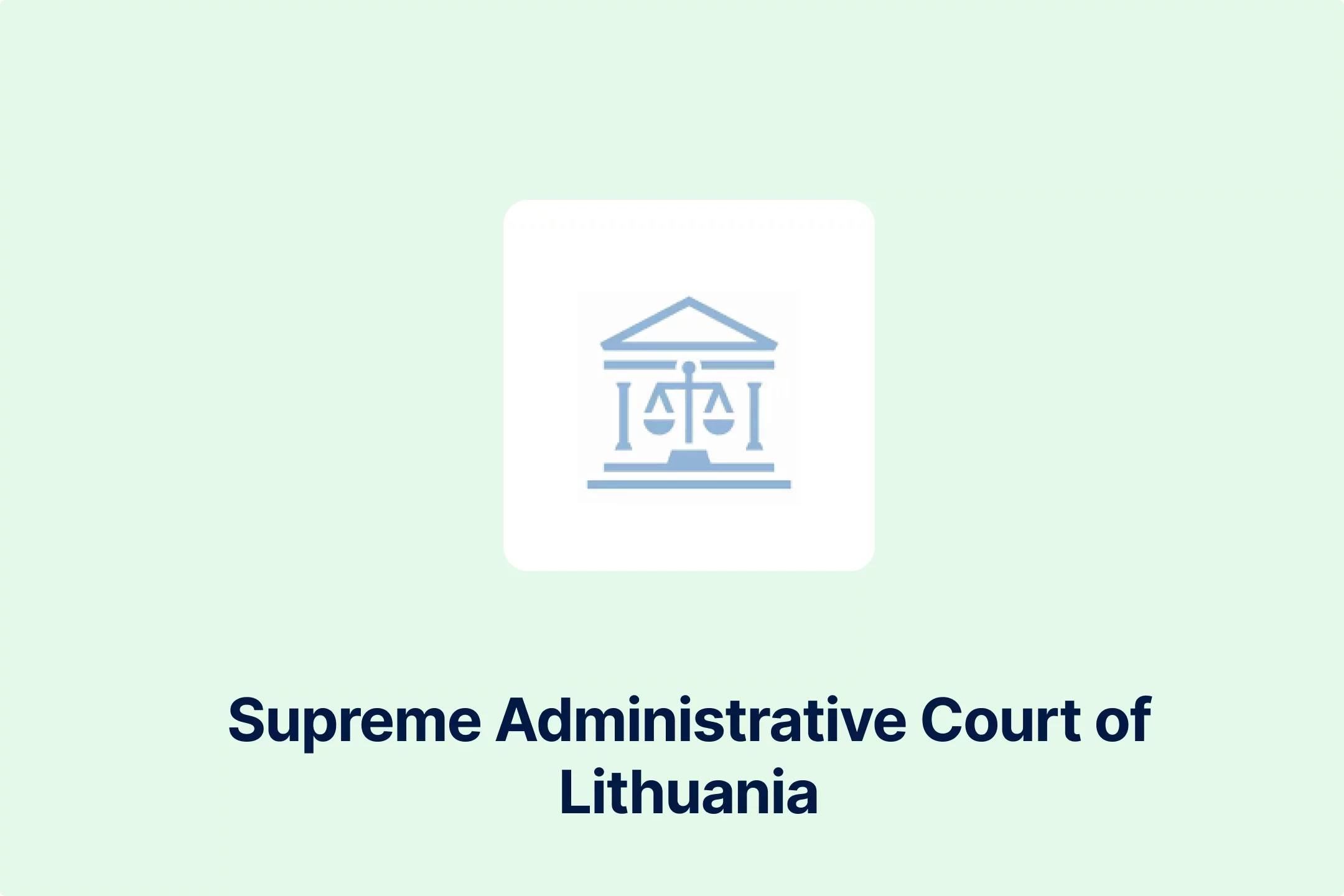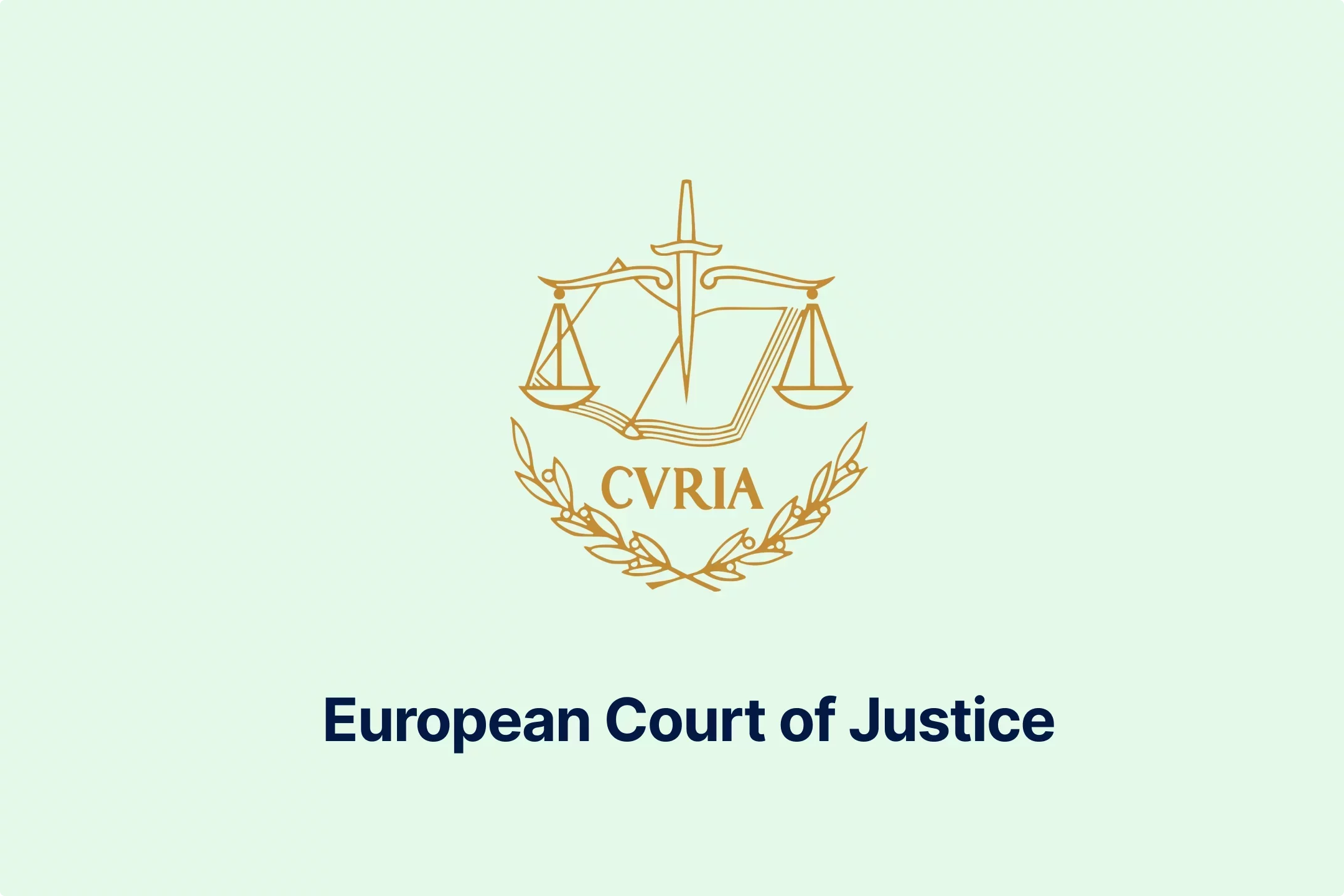Third-Party Rights in VAT Proceedings Under EU VAT Law: M.B. Case Analysis

Summary
National rules may exclude third parties, such as former management board members, from participating in initial tax proceedings that determine a company's VAT debt, even if they could later be held jointly and severally liable.
However, in subsequent proceedings concerning joint and several liability, these third parties must be able to effectively challenge the Tax Authority’s findings from the initial proceedings and have access to the Tax Authority’s file.
The ECJ ruled that while national legislation can exclude third parties from initial tax proceedings, this exclusion cannot extend to subsequent joint and several liability proceedings, where the rights of defense and proportionality must be upheld.
🎧 Prefer to Listen?
Get the audio version of this article and stay informed without reading - perfect for multitasking or learning on the go.
In its February 25, 2025, ruling, the Court of Justice of the European Union (ECJ) addressed the procedural rights of third parties in tax proceedings under both Polish national law and EU law. The case between M.B., who served as the chairperson of the company's management board from August 2014 to January 2018, and the Director of the Tax Administration Chamber (DIAS) involves several fundamental EU principles, primarily rights of the defence and proportionality.
Background of the Case
M.B. became indirectly involved in a tax inspection carried out by the Head of the Tax Authority in Wrocław (NUS), concerning the company’s VAT returns for the period from June to October 2016.
In August 2022, several years after leaving her position, M.B. submitted a formal request to be recognized as a party to the ongoing tax procedure and requested access to the case file, arguing that her former role as chairperson justified such involvement. The NUS denied the request in September 2022, but the DIAS annulled it following M.B. 's complaint.
The DIAS clarified that the decision on whether someone qualifies as a party in a tax procedure must be based strictly on the criteria outlined in Article 133 of the Polish Tax Code, and that, since the M.B. did not meet the specified criteria, there was no legal basis for the NUS to issue a formal order concerning her request. Moreover, the DIAS underlined that the Tax Code does not define the issuance of an order or similar legal act to determine a person’s status in such cases.
Following the DIAS interpretation and decision, M.B. filed an appeal with the Regional Administrative Court (Administrative Court) in December 2022, seeking the annulment of the DIAS order. M.B. claimed that DIAS wrongly interpreted national rules and regulations, adding that as the sole member of the company’s management board during the period under examination, she possessed essential knowledge about the company’s activities relevant to the case.
Additionally, M.B. argued that her hearing as a witness by the NUS was insufficient to ensure that the facts were fully and accurately represented. Moreover, she stated that she had a personal interest in the matter, because any unpaid company's tax liabilities could ultimately affect her financially.
The Administrative Court noted that, under Polish law, the liability of third parties, such as current or former members of the management board, arises from two distinct procedures. The first is a tax proceeding determining the company’s tax debt, in which only the taxable person is considered a party. The second refers to separate proceedings to establish the joint and several liability of third parties, which may occur only if the taxable person fails to fulfill its tax obligations after the tax debt has been determined.
Consequently, as concluded by the Administrative Court, a third party, such as a former member of a company’s management board, does not possess a legal interest allowing them to participate as a party in the tax proceedings of that company. The only case where such a status could be granted is in subsequent proceedings concerning joint and several liability.
Nevertheless, the Administrative Court noted a critical procedural gap. In the joint and several liability proceedings, neither the Tax Code nor established national practices provides a mechanism for a third party to challenge the amount of the company’s tax debt once it has been determined during the initial tax proceedings. The focus is solely on assessing whether the conditions for holding the third party personally liable are met, not on revisiting or disputing the underlying tax debt.
The procedural gap raises questions about whether the established national practice aligns with EU law and poses serious concerns about compliance with fundamental EU legal principles. Furthermore, the Administrative Court observed that excluding a third party, who could later be held jointly and severally liable, from participating in a company’s tax proceedings may prevent that person from challenging any potential errors made by the Tax Authority.
Moreover, once the final decision on the company's tax debt is made, the Tax Authority becomes bound by it, leaving the third party without an effective means to challenge those findings in subsequent proceedings. Also, hearing such a person as a witness during the tax proceedings does not provide the same procedural rights or guarantees as those afforded to a party to the proceedings, such as access to the case file, the ability to present evidence, or the right to challenge the authority’s conclusions.
Due to both the legal and procedural uncertainties, the Administrative Court decided to pause its proceedings and request a preliminary ruling from the ECJ.
Main Questions from Request For Ruling
The Administrative Court asked ECJ whether Articles 205 and 273 of the VAT Directive, when read together with Article 2 of the Treaty on European Union, and with Articles 17, 41, and 47 of the Charter of Fundamental Rights of the European Union, as well as the principles of proportionality, the right to a fair hearing, and the rights of the defence, should be interpreted as prohibiting a national legal framework and administrative practice that prevent a natural person from participating in tax proceedings determining a company’s VAT debt.
In other words, the Administrative Court asked whether it is compatible with EU law to deny a member of a company’s management board the right to take part in the proceedings in which the company’s tax liability is established by a final decision, even though that person might be later held jointly and severally liable for that company’s VAT debt and therefore risk losing personal assets.
Applicable EU VAT Directive Article
Key provisions of the EU VAT Directive for this case are Articles 193, 205, and 273. Article 193 establishes the general rule that the obligation to pay VAT lies with the taxable person who carries out the taxable supply of goods or services, unless specific exceptions apply. However, Article 205 extends VAT liability beyond the person primarily responsible and allows EU countries to designate another person to be jointly and severally liable for VAT.
Finally, Article 273 authorizes EU countries to establish additional obligations they consider necessary to ensure proper VAT collection and to prevent tax evasion. However, when practising this right, EU countries must ensure that such measures comply with the principle of equal treatment, meaning they must apply consistently to both domestic and cross-border transactions. Also, these obligations must not create administrative or procedural barriers related to crossing borders within the EU single market.
Poland National VAT Rules
Regarding the national VAT rules, the ECJ noted that Articles 107, 108(1), 116, and 133(1) of the Tax Code, which govern tax liability and the participation of third parties in tax proceedings, were essential to resolving this dispute.
Importance of the Case for Taxable Persons
For taxable persons, particularly corporate directors and other potentially liable third parties, the present case clarifies their rights in disputes concerning the tax debts of legal entities. More specifically, the case addresses several crucial matters, including when those at risk of personal liability for a company’s VAT debt have the right to participate, access the tax file, and challenge findings in tax proceedings.
Analysis of the Court Findings
The ECJ divided its analysis of the case into three parts: the admissibility of the request for a preliminary ruling, preliminary observations, and substance. The admissibility matter was brought up by the DIAS, which, in its written submission, argued that under Polish law, proceedings concerning the liability of a third party cannot be initiated after more than five years have passed since the end of the calendar year in which the relevant tax arrears arose.
The DIAS held that, since the limitation period expired at the end of 2021, any proceedings to establish M.B.'s joint and several liability as a former member of the management board of the company are time-barred. Based on such reasoning, the DIAS stated that ECJ's response to the request for a preliminary ruling would have no impact on M.B.’s potential liability for the company’s tax debts.
After noting that it may only refuse to answer if it is clear that the issue has no connection with the facts or purpose of the main proceedings, is purely hypothetical, or lacks sufficient factual or legal basis to provide a meaningful response, the ECJ concluded that the request for a preliminary ruling is admissible.
In the preliminary observations part of the ruling, the ECJ noted that under established case-law and applicable EU law, it must provide answers helpful in resolving the case before the referring court, and in doing so, it may reformulate the questions submitted and may consider EU law provisions not explicitly mentioned by the national court.
After carefully examining the question referred and the applicable article from the EU VAT Directive, the ECJ underlined that in the present case, it is not evident from the request that Poland’s system of joint and several liability under Article 116 of the Tax Code is intended to target a person liable for one or more specific taxable transactions, as defined by Articles 193 and 205 of the EU VAT Directive.
The ECJ added that under the Polish national rules and regulations, members or former members of a company’s management board may be held liable for all or part of the company’s VAT debts, without those debts being linked to specific taxable transactions. Consequently, Article 205 of the EU VAT Directive does not apply to the circumstances of the case.
Additionally, the ECJ underlined that regarding the fundamental rights and principles raised by the referring court, Article 41 of the EU Charter, which guarantees the right to good administration, is not applicable in this case because it is addressed solely to EU institutions, bodies, offices, and agencies, not to EU countries.
On the same matter, the ECJ stated that given the administrative nature of the tax proceedings and the subsequent joint and several liability proceedings, Article 47 of the Charter on the right to an effective remedy and a fair trial adds no further relevance beyond the right to effective judicial protection. Also, Article 17 of the Charter on the right to property does not need to be considered, since private assets of management board members are not yet at risk.
As a result of these interpretations and analysis of the question itself, the ECJ reformulated the question to focus on Article 273 of the VAT Directive, read with Article 325(1) TFEU, the rights of the defence, and the principle of proportionality.
Thus, the question in this case, as redefined by the ECJ, is whether these provisions preclude national legislation and practice under which a third party, potentially subject to joint and several liability for a legal person’s tax debt, cannot participate in the tax proceedings determining that debt and is denied an effective means to challenge the findings regarding the existence or amount of the debt in the subsequent joint and several liability proceedings.
After reformulating the question, the ECJ, in substance, interpreted the relevant provisions in light of the newly defined question. It started by stating that, taken together, Articles 273 of the EU VAT Directive and 325(1) TFEU require EU countries to adopt all appropriate legislative and administrative measures to ensure the full collection of VAT within their territory and to prevent evasion.
A system of joint and several liability established under the Polish Tax Code contributes to the proper collection of VAT under Article 273 and aligns with the obligation under Article 325(1) TFEU to protect the financial interests of the EU. However, the discretion to specify obligations and measures needed to ensure VAT collection and prevent evasion must not breach the rights of the defence.
Notably, the rights of the defence require that those affected have the opportunity to effectively present their views regarding the information forming the basis of the Tax Authority’s decision, even where EU law does not explicitly mandate such procedural guarantees. This includes the right to be heard and the right of access to the file.
However, this right is not absolute and may be subject to certain limitations. From the perspective of the tax proceeding, these limitations may be based on the protection of confidentiality or business secrets. Furthermore, the ECJ highlighted that legal certainty, another general principle of EU law, must be taken into account when assessing whether the rights of the defence have been respected.
Courts Final Decision
In accordance with the stated principles, the ECJ ruled that the rights of the defence and the principle of proportionality must be understood as not preventing national legislation and practices to exclude a third party from being a party to the proceedings determining that legal person’s tax debt, even if the third party might be held jointly and severally liable for a legal person’s tax debt.
However, the ECJ added that in any subsequent joint and several liability proceedings against that third party, they must be able to effectively challenge the Tax Authority’s findings of fact and legal classifications from the initial proceedings and have access to the Tax Authority’s file, in line with their rights and those of other affected third parties.
Conclusion
Ultimately, the ECJ concluded that national rules and regulations may exclude third parties from participating in a company’s initial tax proceedings, including denying access to the tax files and challenging findings. However, such an exclusion must not exist in subsequent tax procedures concerning the joint and several liability of the third parties. Moreover, in respect of EU principles, those potentially liable under joint and several liability must have effective means to challenge the Tax Authority’s findings and access the file in subsequent proceedings.
Source: Case C‑277/24 - M.B. v Director of the Tax Administration Chamber, Wrocław, Poland, EU VAT Directive

Featured Insights

Burkina Faso FEC E-Invoicing Mandatory July 2026
🕝 February 24, 2026More News from Europe
Get real-time updates and developments from around the world, keeping you informed and prepared.
-e9lcpxl5nq.webp)




-zzrhegqsyq.webp)

-ulcnia30z1.webp)



-3rcczziozt.webp)

-rvskhoqpms.webp)




-a5mkrjbira.webp)

-ivkzc1pwr4.webp)




-hssrwb5osg.webp)



-c06xa1wopr.webp)









-webajrr4ny.webp)
-evibmwdwcn.webp)
-7acdre0hop.webp)

-lcgcyghaer.webp)
-ol6mdkdowg.webp)
-aqdwtmzhkd.webp)

-njgdvdxe2u.webp)



-i6rki3jbad.webp)
-hdwgtama05.webp)

-atbhy5fyxv.webp)






-zp2n6zixoa.webp)
-oa1ynbm4sn.webp)


-lltkno6txy.webp)



-do38odrqnq.webp)

-t409oldqzt.webp)

-hordopb6xh.webp)

-ooimnrbete.webp)

-lwb5qpsily.webp)


-eumafizrhm.webp)

-mtqp3va9gb.webp)
-3ewrn1yvfa.webp)
-591j35flz2.webp)

-huj3cam1de.webp)


-hafis0ii23.webp)

-qseaw5zmcy.webp)



-qzsah2ifqx.webp)


-69rzooghib.webp)
-wrvng98m0g.webp)


-psucycuxh2.webp)
-klyo8bn5lc.webp)




-6wv5h5eyyd.webp)
-tfgg78rbid.webp)
-a6jpv9ny8v.webp)
-qhdbapy0qr.webp)


-owvu7zoc13.webp)


-h28jrh1ukm.webp)

-wl9bl1rw3a.webp)

-2w76jtvtuk.webp)

-c0uvrmrq9j.webp)



-pofe7ucwz3.webp)



-5cc23ezxyf.webp)
-rrmabbekeb.webp)








-iyyeiabtaf.webp)
-c8rbjkcs01.webp)
-nilkffjhah.webp)

-hikakq55ae.webp)

-z1d60bldtg.webp)
-d1a0q6n7mp.webp)
-viip8nvoeh.webp)
-bvv1otliox.webp)



-de8hdb1bn3.webp)
-7xsxxoypnx.webp)

-cm0opezg73.webp)
-0tovsdupmi.webp)
-subxdamdj6.webp)


-gly6ablwnh.webp)
-gkduqhwbzh.webp)
-qpe1ld9vcj.webp)
-8noukwsmba.webp)
-aka29tuhkt.webp)


-fisvs27yrp.webp)


-mp0jakanyb.webp)

-aivzsuryuq.webp)



-o7f4ogsy06.webp)

-zjja92wdje.webp)
-hrbhdts8ry.webp)
-qtdkwpgkug.webp)


-cf8ccgah0p.webp)
-0em3cif5s6.webp)






-ptzesl0kij.webp)

-tfzv42pyms.webp)







-uodv7sfbih.webp)
-bbrdfmm9qf.webp)



-m2tl8crfqr.webp)




-1awbqjgpjs.webp)
-avbjsn1k1g.webp)


-0h8ohkx6s0.webp)



-wfmqhtc7i6.webp)
-7wljbof2zo.webp)

-eqt97uyekl.webp)
-wzw9mcf563.webp)

-z4oxr6i0zd.webp)




-l0zcrrzvhb.webp)
-fhtic1pwml.webp)

-iipdguuz9p.webp)
-nkhhwrnggm.webp)
-pltqwerr3w.webp)

-nn6mtfbneq.webp)

-tmnklelfku.webp)



-8z1msbdibu.webp)
-7g16lgggrv.webp)



-lxcwgtzitc.webp)
-9mc55kqwtx.webp)


-xla7j3cxwz.webp)
-jrdryw2eil.webp)






-t9qr49xs2u.webp)


-qjopq5jplv.webp)



-vune1zdqex.webp)

-qsozqjwle2.webp)
-rgjta7iwiv.webp)

-zb6bxxws47.webp)
-lyfjzw4okp.webp)

-ogpfmol5m1.png)


-czisebympl.png)

-zetvivc79v.png)
-ud7ylvkade.png)
-qizq6w2v5z.png)







-ihr6b4mpo1.webp)
-k1j4au0ph6.webp)
-swxxcatugi.webp)


-ig9tutqopw.webp)

-tauoa6ziym.webp)

-spr0wydvvg.webp)

-xfuognajem.webp)





-u2nv5luoqc.webp)








-opuxpan2iu.webp)




-kwttsfd8ow.webp)
-8u14qi10nj.webp)

-wjpr96aq5g.webp)

.png)

.png)


.png)


.png)



.png)
.png)
.png)
.png)
.png)

.png)
.png)




.png)
.png)




































































































































